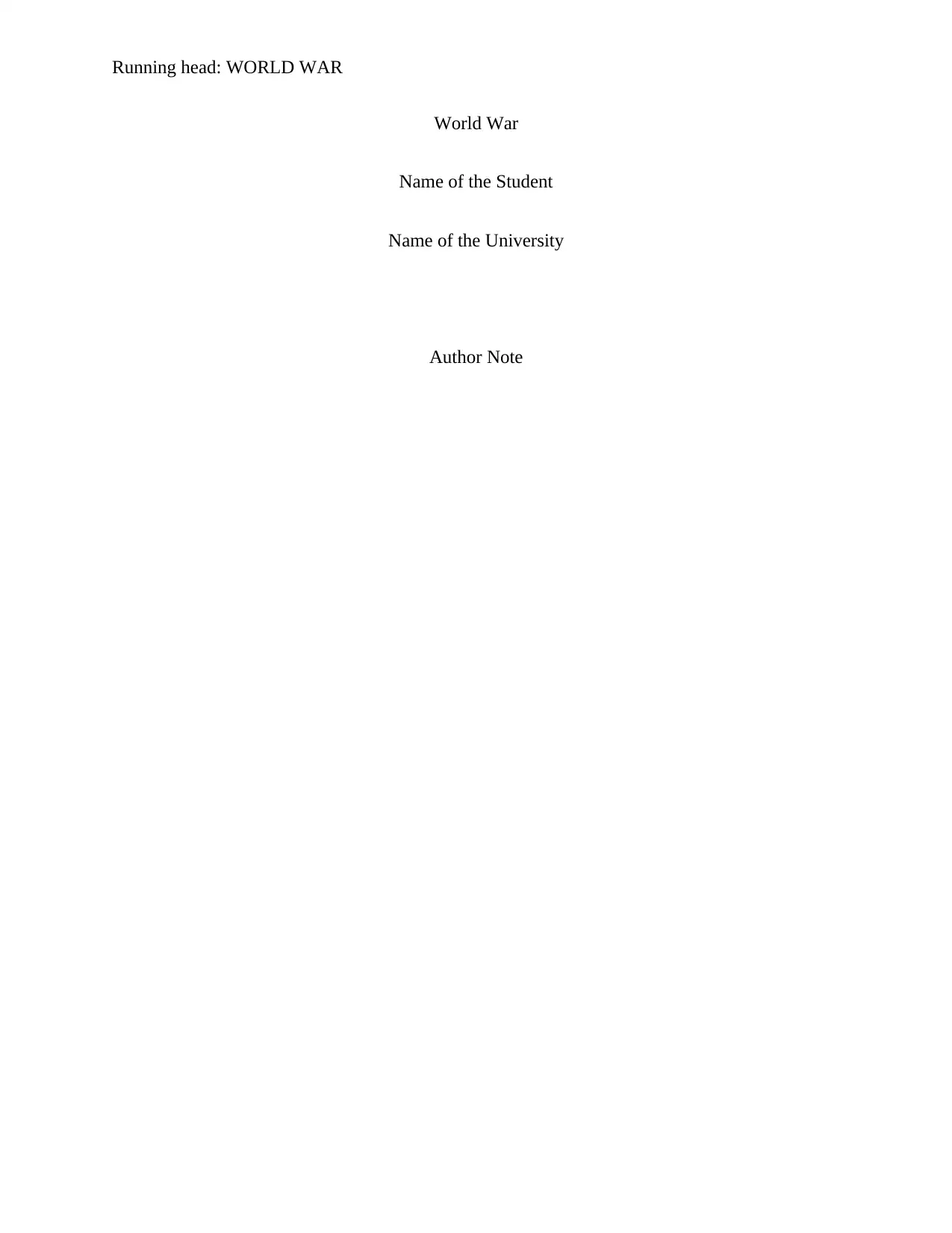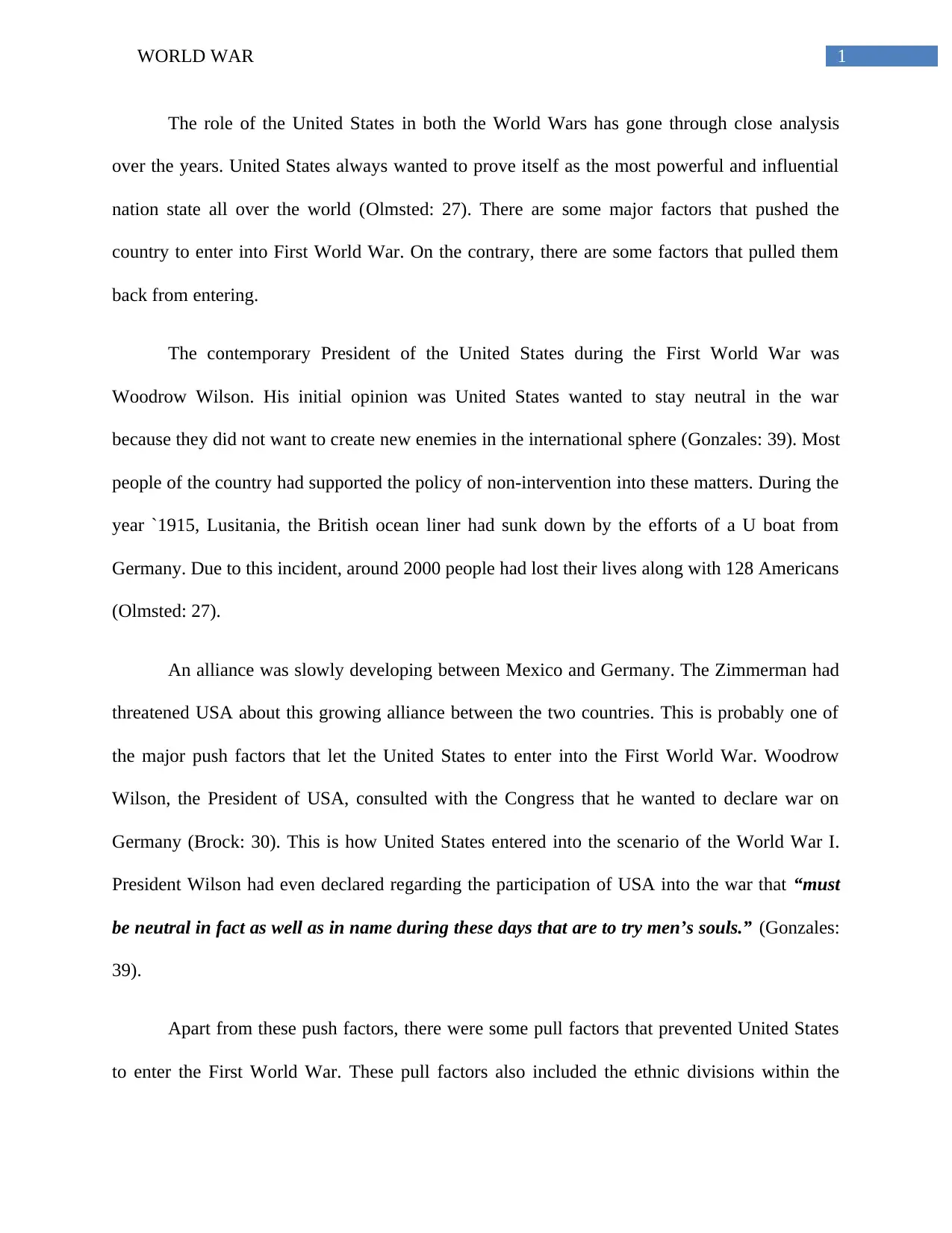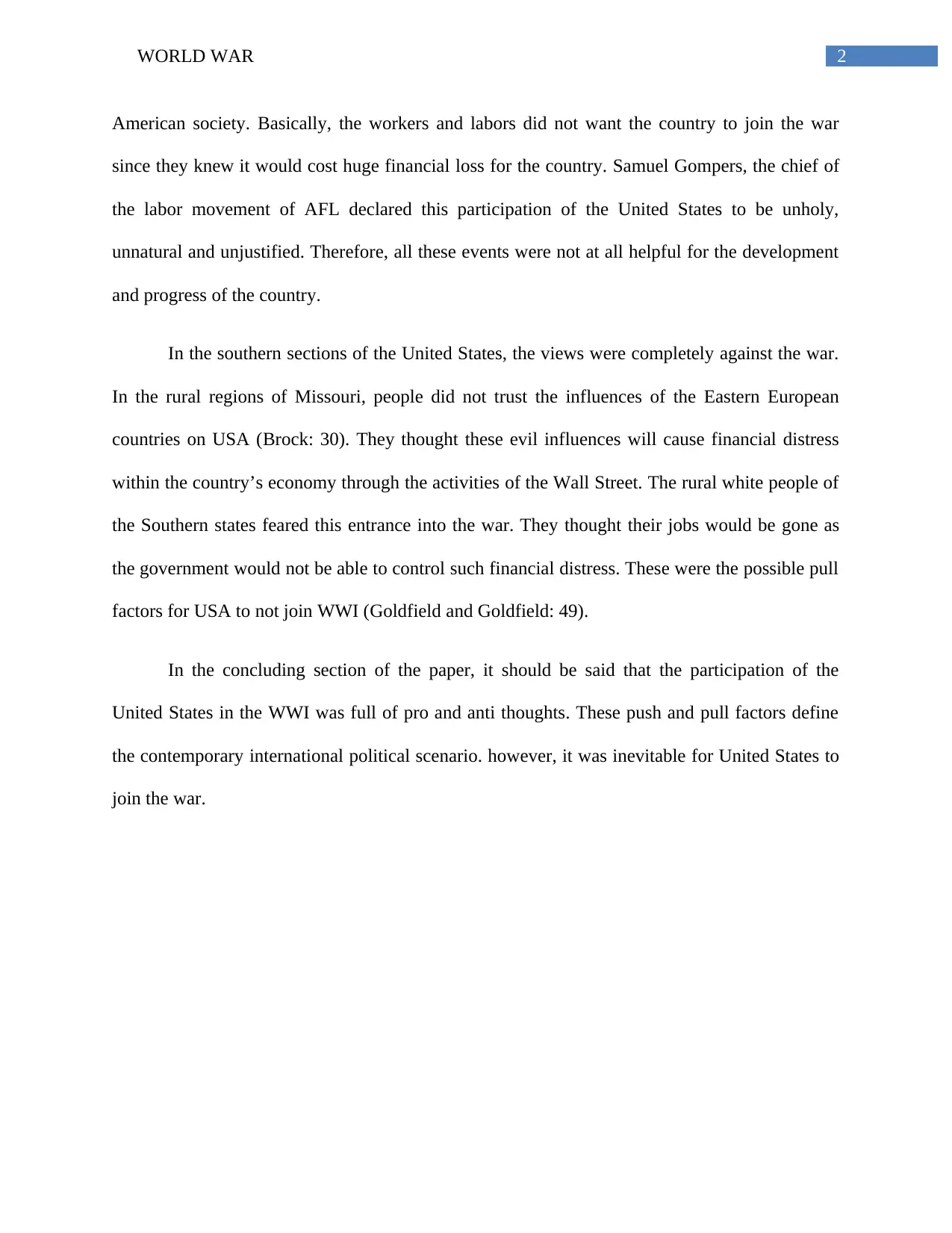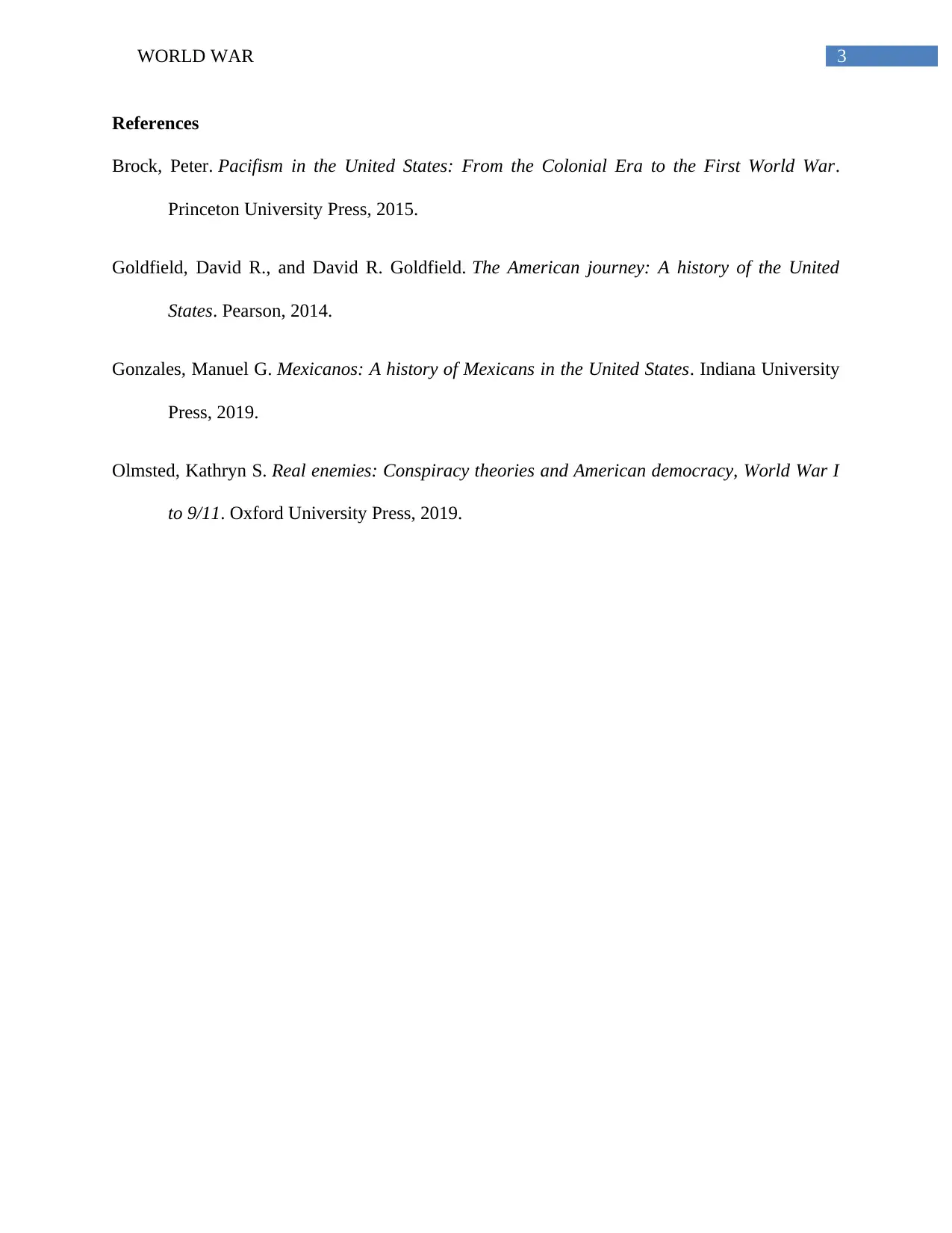The United States' Entry into World War I: A Detailed Analysis
VerifiedAdded on 2022/08/21
|4
|718
|19
Essay
AI Summary
This essay examines the United States' involvement in World War I, analyzing both the factors that pushed the country towards war and those that initially kept it neutral. The paper highlights key events like the sinking of the Lusitania and the Zimmerman Telegram, which influenced President Woodrow Wilson's decision to declare war on Germany. It also explores the pull factors, including ethnic divisions and economic concerns among American workers and rural populations, who were hesitant about joining the conflict. The essay concludes by emphasizing the complex interplay of pro and anti-war sentiments that ultimately shaped the United States' entry into World War I and its impact on the international political landscape. The paper references the historical context and explores the motivations behind the US's decision-making process during the war.
1 out of 4











![[object Object]](/_next/static/media/star-bottom.7253800d.svg)